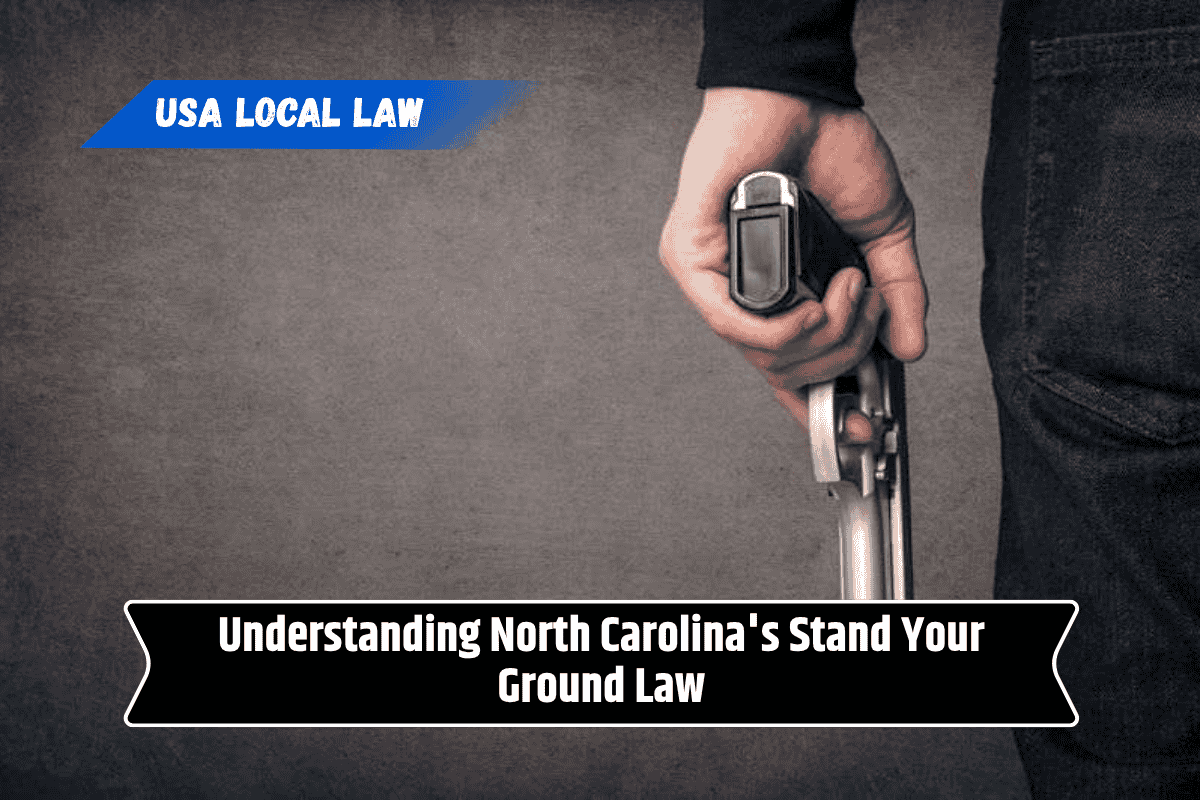In North Carolina, like in many other states, there are laws that allow people to defend themselves if they feel threatened. One of the most important self-defense laws is the “Stand Your Ground” law.
This law gives individuals the right to defend themselves with force if they believe they are in immediate danger, without the need to retreat from the situation.
This article will explain how North Carolina’s Stand Your Ground law works, what it means for you, and how it differs from other self-defense laws.
What Is North Carolina’s Stand Your Ground Law?
North Carolina’s Stand Your Ground law is a self-defense law that allows individuals to use force, including deadly force, to protect themselves if they believe they are in imminent danger of death or serious harm.
The key point is that there is no duty to retreat—meaning, you do not have to try to escape or avoid the situation before using force to protect yourself.
This law applies when you are in a place where you have a legal right to be, such as your home, car, or any public space. You can stand your ground and defend yourself if you feel threatened, as long as your actions are reasonable.
How Does Stand Your Ground Work in North Carolina?
Under the law, you can use force when you are in a situation where:
- You are in imminent danger: If someone is threatening you with harm or using force against you, you have the right to protect yourself.
- You are in a place you have a right to be: This can include your home, workplace, or a public place.
- You are not the aggressor: The law only applies if you are not the one who started the conflict. If you provoke the situation, you may lose the right to stand your ground.
- The force is reasonable: You can only use as much force as needed to stop the threat. Deadly force is allowed only if you believe your life or well-being is in serious danger.
If these conditions are met, you can use force to defend yourself without being required to retreat.
How Is Stand Your Ground Different from the Duty to Retreat?
Some states have a duty to retreat law, which means that if you are threatened, you must try to escape the situation if you can do so safely before using force. However, North Carolina’s Stand Your Ground law does not require you to retreat before using force.
In other words, if someone threatens you or attacks you, and you have no way to safely avoid the situation, you do not have to back down. You have the right to defend yourself using force if necessary. This is different from laws in other states that may require retreat if you can safely do so.
What Happens If You Use Force Under Stand Your Ground?
If you use force under North Carolina’s Stand Your Ground law, you may not be charged with a crime, as long as the force used is reasonable and justified. However, you may still need to prove that your actions were necessary for self-defense.
If someone is injured or killed, law enforcement may investigate the situation, but the burden of proof typically falls on the prosecution. This means that you do not have to prove you acted in self-defense—rather, it is up to the state to prove that you did not.
If you use excessive force or the situation was not truly threatening, you may face criminal charges, such as assault or manslaughter.
Can You Use Stand Your Ground for Property Defense?
North Carolina’s Stand Your Ground law primarily applies to self-defense against personal harm. While you do have the right to defend your home or property, there are other laws specifically related to defending property, such as the Castle Doctrine.
The Castle Doctrine allows you to use force, including deadly force, to protect yourself and your home if an intruder unlawfully enters. This is a separate law from the Stand Your Ground law, but it still grants the right to defend your property.
North Carolina’s Stand Your Ground law gives you the right to defend yourself with reasonable force if you are in imminent danger and in a place where you have a legal right to be.
The key difference from other self-defense laws is that there is no duty to retreat—you do not have to try to escape the situation before using force. However, you can only use force if it is necessary and reasonable for protecting yourself.
It’s important to understand that while the Stand Your Ground law protects your right to defend yourself, using excessive force can still lead to criminal charges. Always be sure that your actions are justified and reasonable based on the situation.
